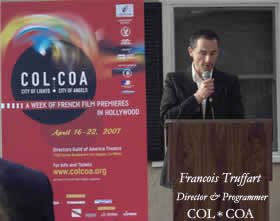 Francois Truffart COLCOA Director and programmer after completing a Master’s degree in Politics in Paris in 1989 became the cultural attaché in charge of cinema promotion at the French Embassy in Hungary, Japan and the United States (Los Angeles) successively. He has also been the Director for the Cinefondation at Cannes Film Festival and represented the Cannes Film Market in the US. He is a programming consultant for festivals and also for film finance and international film distribution through his LA-based company Sorry Angels, Inc. In 2004 in
Francois Truffart COLCOA Director and programmer after completing a Master’s degree in Politics in Paris in 1989 became the cultural attaché in charge of cinema promotion at the French Embassy in Hungary, Japan and the United States (Los Angeles) successively. He has also been the Director for the Cinefondation at Cannes Film Festival and represented the Cannes Film Market in the US. He is a programming consultant for festivals and also for film finance and international film distribution through his LA-based company Sorry Angels, Inc. In 2004 in 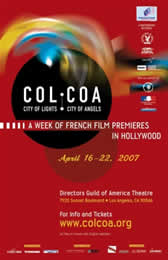 Tokyo, he founded the Japanese music label, Cinemania 35. He has been in charge of the selection and the program for COLCOA for three years before being assigned as director and programmer in 2007.
Tokyo, he founded the Japanese music label, Cinemania 35. He has been in charge of the selection and the program for COLCOA for three years before being assigned as director and programmer in 2007.
Bijan Tehrani: When did COL*COA start?
Francois Truffart: It started exactly ten years ago in 1997 and it was created by a fund called the Franco-American Cultural Fund. A decision was made to have a special showcase in Los Angeles to promote French Cinema. We started as a very small event with six films and every year we grew and now we are here.
Bijan: Please tell us about the COL*COA 2007 program. 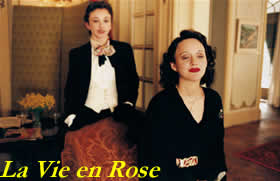 Francois: This year we have forty films including twenty features and twenty short-films. All of them are being shown for the first time in Los Angeles except for one short film. We have included nine North American premieres. Screening twenty feature films means that we have two more features. We added two films because we wanted to show, and we try to do this every year, the diversity of the French productions. We are in Hollywood so we need to have some exclusivity in our films and we need to show some very new films and this is what the audience expects. Most of the people that are coming have been to the festival before so they are expecting, always, to see new films. When I speak about the diversity I would say that we have comedies,
Francois: This year we have forty films including twenty features and twenty short-films. All of them are being shown for the first time in Los Angeles except for one short film. We have included nine North American premieres. Screening twenty feature films means that we have two more features. We added two films because we wanted to show, and we try to do this every year, the diversity of the French productions. We are in Hollywood so we need to have some exclusivity in our films and we need to show some very new films and this is what the audience expects. Most of the people that are coming have been to the festival before so they are expecting, always, to see new films. When I speak about the diversity I would say that we have comedies, 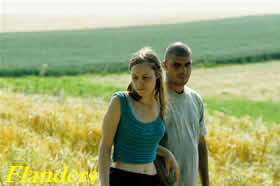 romantic comedies, documentaries, drama, and movies coming up with new styles, and films that are very popular in France; so some of these will be very popular in the United States.
romantic comedies, documentaries, drama, and movies coming up with new styles, and films that are very popular in France; so some of these will be very popular in the United States.
Bijan: Are there any films this year that have won awards at international film festivals?
François: There is one for sure. Which is Flanders from Bruno Dumont which was at the Cannes festival last year and it will be shown for the first time in Los Angeles. We have the opening night, the premiere of “La Vie en Rose” a biopic film about Edith Piaf. This film was the opening film of the Berlin Film Festival. It is a big event and 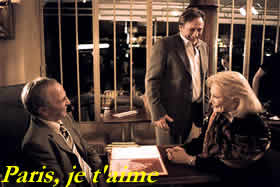 it is very expected. We have some premiers of great films that have already been bought up by US distributors. Films like Priceless which is a film from Pierre Salvadori with Benoît Graffin. I think this film will be very successful here at ColCoa. We also have a film called Paris, Je t’aime which was selected in Cannes last year. And, as you know, it’s in a series of short films about Paris directed by famous directors from all over the world and particularly from France and the United States. It’s a good example of a bridge between filmmakers in the US and France. The film will be shown for the first time in Los Angeles on
it is very expected. We have some premiers of great films that have already been bought up by US distributors. Films like Priceless which is a film from Pierre Salvadori with Benoît Graffin. I think this film will be very successful here at ColCoa. We also have a film called Paris, Je t’aime which was selected in Cannes last year. And, as you know, it’s in a series of short films about Paris directed by famous directors from all over the world and particularly from France and the United States. It’s a good example of a bridge between filmmakers in the US and France. The film will be shown for the first time in Los Angeles on 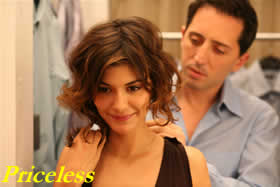 Friday with Wes Craven and Olivier Assayas coming on stage.
Friday with Wes Craven and Olivier Assayas coming on stage.
Bijan: Please name a few of the filmmakers and actors that are attending COLCOA 2007?
Francois: We have quite a few this year. First of all we have Olivier Dahan who is the writer and director of La Vie en Rose, the opening film. We also have Olivier Assayas for Paris, Je T’aime and Pierre Salvadori for Priceless. We will have the writer of a beautiful film called, in English, “Could This Be Love?”, Pierre Jolivet. We also have the director of the closing night film, a beautiful film called Michou D’Auber, Thomas Gilou. This is 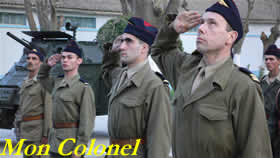 the North American premiere of this film, which was just released in France. By the way, we have a film that is, unfortunately, without a director present; but the film is really a new film and it just opened last week. It’s called, in English, “Hunting and Gathering” from Claude Berri and it’s a very new film with Audrey Tautou. We are very proud because we have two US premieres, or North American premieres, with Audrey Tautou. We also have three films with a very important actress called Cécile de France and one of those is “Mon Colonel”, which is written by Costa-Gavras. We also have “The Singer”. “The Singer” is a very
the North American premiere of this film, which was just released in France. By the way, we have a film that is, unfortunately, without a director present; but the film is really a new film and it just opened last week. It’s called, in English, “Hunting and Gathering” from Claude Berri and it’s a very new film with Audrey Tautou. We are very proud because we have two US premieres, or North American premieres, with Audrey Tautou. We also have three films with a very important actress called Cécile de France and one of those is “Mon Colonel”, which is written by Costa-Gavras. We also have “The Singer”. “The Singer” is a very 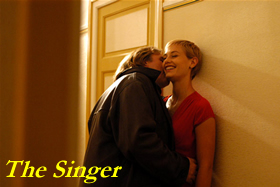 interesting film and this is our special 11th Anniversary Screening. It’s from a young director called Xavier Giannoli and it’s a film with Gérard Depardieu and Cécile de France and the film was selected in Cannes last year.
interesting film and this is our special 11th Anniversary Screening. It’s from a young director called Xavier Giannoli and it’s a film with Gérard Depardieu and Cécile de France and the film was selected in Cannes last year.
Bijan: While New French movies are entertaining for the audience, they still offer a more faithful approach to the realities of life than movies made in Hollywood. Is this reflected in the French movies showcased at COLCOA?
Francois: Well if I understand your question I will have different answers. First of all, it’s very important to 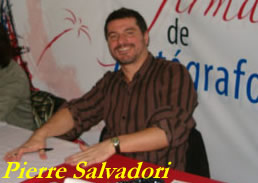 understand that most of our audience is people from the industry in Hollywood. They are guiders and we are produced by the guilds: the Actors’ guild, the Writers guild, the Motion Picture Association. So, all of these members are part of our audience and they like the French cinema and they want to see different films. We also have producers that are well interested in remake-rights. We also have distributors who can eventually buy a film during ColCoa—we’ve had that before—and we have some artistic agents who are looking for new talent in directors and actors. So they are coming to ColCoa to see new films
understand that most of our audience is people from the industry in Hollywood. They are guiders and we are produced by the guilds: the Actors’ guild, the Writers guild, the Motion Picture Association. So, all of these members are part of our audience and they like the French cinema and they want to see different films. We also have producers that are well interested in remake-rights. We also have distributors who can eventually buy a film during ColCoa—we’ve had that before—and we have some artistic agents who are looking for new talent in directors and actors. So they are coming to ColCoa to see new films 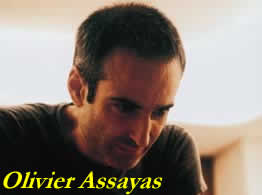 and this is a big reason why we have new films: because we have a very professional audience. Now, of course we are open to the public so we can have both kinds of people in the theater which is good for the distributors, for example, because they can test the film with an American audience. To go back to your question—which is a very important question—the reason why we want to show the diversity is because we think that there are a lot of French films, I would think mainstream films, that could be interesting for a large audience but not really considered intellectual. Sometimes, it’s funny: films can be considered intellectual in France but when they are shown in America people don’t think the film is intellectual, but that it is artistic. This is funny because we just have different perceptions in France and America. To answer your question, yes; we have a very artistic style and I think that the new generation of the new French New Wave is at ColCoa. I’m thinking about Bruno Dumont for “Flanders”, I’m thinking about a very beautiful film called “Change of Address”, from Emmanuel Mouret, which is really a reference to François Truffaut. So we are barely in the new-wave style of film and at the same time there are some very important films such as Film Noir, which are dramatic, and your question is interesting because even if they are for a large audience, they are still very French; they are speaking about relationships between man and women, between people and in a different way that you can see them, for example, here in America. So, culturally speaking, they are still very French but they are more, I would say, in a way entertaining.
and this is a big reason why we have new films: because we have a very professional audience. Now, of course we are open to the public so we can have both kinds of people in the theater which is good for the distributors, for example, because they can test the film with an American audience. To go back to your question—which is a very important question—the reason why we want to show the diversity is because we think that there are a lot of French films, I would think mainstream films, that could be interesting for a large audience but not really considered intellectual. Sometimes, it’s funny: films can be considered intellectual in France but when they are shown in America people don’t think the film is intellectual, but that it is artistic. This is funny because we just have different perceptions in France and America. To answer your question, yes; we have a very artistic style and I think that the new generation of the new French New Wave is at ColCoa. I’m thinking about Bruno Dumont for “Flanders”, I’m thinking about a very beautiful film called “Change of Address”, from Emmanuel Mouret, which is really a reference to François Truffaut. So we are barely in the new-wave style of film and at the same time there are some very important films such as Film Noir, which are dramatic, and your question is interesting because even if they are for a large audience, they are still very French; they are speaking about relationships between man and women, between people and in a different way that you can see them, for example, here in America. So, culturally speaking, they are still very French but they are more, I would say, in a way entertaining.
Bijan: How can film fans attend the screenings and see the movies and where will the screenings be held? Are tickets already being sold? 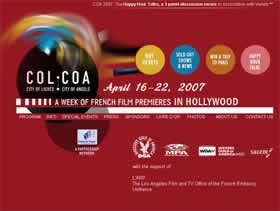 Francois: Yes, we have a box office here so if people want to buy tickets. The box office is already open on our website, http://colcoa.org/site/home/index.htm, and you can buy tickets on the website for all of the films. It’s already open and we have already sold something like 1,000 tickets and it’s going to be open until the end of the festival. We also have a weekend before ColCoa at the Directors Guild of America in Hollywood and people can physically come and buy tickets. We will be doing the event on the set at the DGA we will have tickets on sale. We have a special price for students and it’s just $5, which is a good price for them to come and discover French Cinema. Also, we created a new rendezvous this year called the Happy Hour Talk, which is a series of panels about cinema. It’s free for people that already hold tickets for the film of the day and they can start their evening at ColCoa with a one hour discussion about some topics like distribution and the way French Filmmakers are influenced by American Cinema; so this will take place for three days before the screenings and we offer to the people not only the possibility to come for free but we invite them to a wine and cheese discussion. We are French, so we need some wine somewhere!
Francois: Yes, we have a box office here so if people want to buy tickets. The box office is already open on our website, http://colcoa.org/site/home/index.htm, and you can buy tickets on the website for all of the films. It’s already open and we have already sold something like 1,000 tickets and it’s going to be open until the end of the festival. We also have a weekend before ColCoa at the Directors Guild of America in Hollywood and people can physically come and buy tickets. We will be doing the event on the set at the DGA we will have tickets on sale. We have a special price for students and it’s just $5, which is a good price for them to come and discover French Cinema. Also, we created a new rendezvous this year called the Happy Hour Talk, which is a series of panels about cinema. It’s free for people that already hold tickets for the film of the day and they can start their evening at ColCoa with a one hour discussion about some topics like distribution and the way French Filmmakers are influenced by American Cinema; so this will take place for three days before the screenings and we offer to the people not only the possibility to come for free but we invite them to a wine and cheese discussion. We are French, so we need some wine somewhere!

